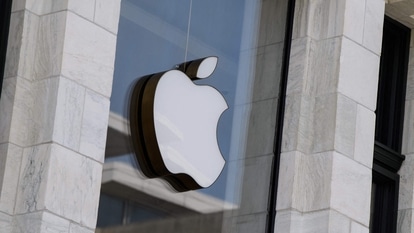Is it time to get off Facebook?
Do you think Facebook has hijacked your personal life? Here are the major issues that are forcing people to quit it
With over 900 active million users, Facebook, the major social networking fad, is one of the most visited sites on internet, today. Started in February 2004, the site was founded by Mark Zuckerberg with his college roommates and fellow students, Eduardo Saverin, Dustin Moskovitz and Chris Hughes. Facebook had a limited membership at the time of its inception, but seeing the popularity it was gaining, the developers opened its membership to everyone across the world, free of cost.
Eight years after its formation, the site has started receiving severe criticism from its users over many issues. This majorly includes issues concerning privacy settings, censorship rules and above all, a fatigue that people want to get over.
There are many campaigns doing the rounds over the internet that has got people talking about this whole issue, the most popular being the 'Get Off Facebook' campaign and 'We are Zucked'.
Today, in this special report, we get you two major concerns of Facebook users — privacy and fatigue — and discuss how it's hampering the lives of many users. We also get you some opinions from psychologists and ways to delete your account or secure it. Here's a look.
What are the major privacy issues?
1 Your where abouts:
With the introduction of the new map feature on Facebook's (FB) timeline, it's very easy for anyone to track down your whereabouts. For eg, if you are touring with your family to an 'X' place and access Facebook through your laptop or phone to update a status or upload a picture, your location would automatically flash on the map.
2 Out of control Posts:
FB has collaborated with some sites, wherein, when you log on to those sites, there is an automatic update on your wall without a prior notice to you. For eg, anytime a regular Spotify user turns on its app and clicks play, the app beams information on FB and broadcasts it to your friends.
3 RSVP to an event:
Whenever you RSVP to an event on Facebook, it automatically gets posted on your friends' walls as an update of yours, in which it is mentioned that you're attending the said event. This also happens when you 'like' the pages of your favourite brands or artists. You might just become the brand's promoter and won't even come to know about it.
4 The mad AD world:
According to a new policy, Facebook now captures information about you anytime you are on a website that has a Facebook 'like' button. Whether or not you click those features, Facebook still knows you are there and stores that information for up to 90 days. That information is then used to target you with ads.
5 Barter system:
Another addition to the FB trouble is the news application — Washington Post Social Reader. If you are interested in reading an article read by a friend, then you have to allow the application to access your personal information. So, remember the 'allow/skip' step. You might casually click on the link, but FB watches as you keep reading.
6 Account settings:
The account and privacy settings on FB are too complicated and tedious. It involves a lot of research and digging up information online, and one gets confused in the process. People end up sharing their important and private news/feeds/pictures with an audience wider than just their friends.
7 The gaming zone:
For every game that you play on Facebook for fun and leisure, you are allowing that application to access your name, gender, list of friends and all kinds of other information available on your profile. And if you give the game certain permissions, it can peer deeper into your data and even see information that your friends share with you.
8 Picture this:
A FB page called, Hot Indian School and College Going Girls, was quite a rage on the net. It was compiled by downloading the pictures of some Indian girls through Facebook. So, it is clear that Facebook does not have a clear policy on picture privacy. Anybody and everybody can see and download your pictures, which is very risky.
How to secure your account
1. Enable login notifications: This lets you know when your account has been accessed.
2.Use a dedicated email address for Facebook: If you use an email account for Facebook that you also use for banking or other sensitive information, then you might be at risk if your FB account is ever hacked. So, make a separate email account for Facebook.
3.Control third party apps: Remove any questionable third party apps. Always take care when choosing which apps to install. Install apps from only trusted, well-known developers. You can also turn off all platform apps.
4.Look before you post: Use the built-in sharing controls in Facebook for status updates and other posts to limit access to the intended audience.
5.Log out of Facebook: Facebook has been known to track user activity on other websites, so log out when you are not using it.
6.Create a secure password: Don't use the same password for Facebook that you use to access other accounts.
7.Don't open suspicious links: Your wall or your inbox might have messages containing certain links without any further details. Don't try to open these links and delete them as soon as you can.
Quit facebook day
Quit Facebook Day was an online event that was marked on May 31, 2010. On this day, Facebook users stated that they would quit the social network as a protest against the recent privacy concerns. It was estimated that 2% of Facebook users coming from the United States would delete their accounts. However, only 33,000 users quit the site.
But the movement saw a good response and there was also a site, www.quitfacebookday.com, which was formed for it. People were asked to sign up on the website and join in for a mass removal from the site. People also put up their reasons for quitting Facebook on the site.
The site quoted, "For us, it comes down to two things: fair choices and best intentions. In our view, Facebook doesn't do a good job in either department. Facebook gives you choices about how to manage your data, but they aren't fair choices. While the onus is on the individual to manage these choices, Facebook makes it difficult for the average user to understand or manage this. We also don't think Facebook has much respect for you or your data,especially in the context of the future."
It added, "For a lot of people, quitting Facebook revolves around privacy. This is a legitimate concern, but we also think the privacy issue is just the symptom of a larger set of issues. The cumulative effects of what Facebook does now will not play out well in the future, and we care deeply about the future of the web as an open, safe and human place."
How to permanently delete your account
1. Permanent account deletion on Facebook means that your account cannot be reactivated. Also, none of the content or information you have added can be retrieved. So, make sure that you are fully prepared while doing this.
2. To delete your profile, visit the account deletion page of Facebook and click 'Submit'. Then follow some simple steps, such as entering your password and email.
3.Once you have submitted your details, do not log on to Facebook for 14 days. In case you change your mind, just log in within 14 days and your account will be reactivated.
4.Meanwhile, you can write a mail to facebook at privacy@facebook.com and report about your account deletion request. You could also cc it to support@facebook.com and info@ facebook.com, just to be double sure.
5.Wait for an email response from Facebook confirming the deletion of your account. This would take a few days.
6.Attempt to log in to your account once you get an email from Facebook. If you're unable to log in and don't get a message asking you to reactivate your account, your Facebook account has been permanently deleted.
Expert comments
Samir Parikh, Psychiatrist
Social networking is a boon in terms of the opportunities it presents for people to stay connected with each other. However, when this activity takes the form of an addiction, such that one ignores everyday routine activities, it tends to be detrimental and harmful to health and well-being.
Arti Singh Raghuvanshi, clinical psychologist
People are spending so much time on Facebook that they are now living in a virtual world and distancing themselves from the real world. People who use a lot of these networking sites often complain of chronic fatigue, depression, mood swings and insomnia.
Neon coloured skirts go well with shirts and fitted T-shirts. Wear ballerinas and flats to complete the look. Avoid wearing heels to college Nikhita Tandon
Fatigue
What's troubling the users worldwide?
Addiction
1 According to reports, once you are addicted to this social networking site, there is a constant urge to log on whenever you are relatively free to check out what
status/pictures/posts your friends have updated. You also refresh your page to get the latest feeds. This is a clear indication that you are addicted to FB and have to stop here.
2 Virtual over real:
People expect you to know everything about them through Facebook, as the social networking site creates a crossover from the real world to a virtual environment. For eg, friends expect you to check out their wedding announcement on Facebook or their promotions. This kind of problem is making many users deactivate their account.
3 Effects on Youngsters:
Stalking people, hacking into accounts and getting too much involved with unknown people are some of the broadly recognised negative effects of FB on youngsters. It also increases the chances of online conflict. FB is populated with immature individuals who update bizarre statuses, upload awkward images and carry out absurd actions.
'
4 Divorce:
Facebook has been criticised for making people envious and unhappy due to the constant exposure to positive yet unrepresentative highlights of their peers. It can effect marriages, with the users becoming worried about their spouse's contacts and relations with other people online, leading to marital breakdown and divorce.
5 Depression:
According to many international reports conducted abroad, people who are active users of social media are more likely to suffer from depression and low self-esteem. The cases are higher in girls, as they are more likely to dislike their body type and weight, leading to a lot of depression.
6 Lower facebook growth:
According to a recent report published in The Wall Street Journal, Facebook's user growth rate is at its lowest level since 2008. There are reports of users defriending the site like never before. While there are new members from countries that are relatively late in adopting Facebook, big ones like the US, UK and Canada are opting out.
7 Rolling stone movemeNt:
Similar to the wave that saw almost everybody joining Facebook soon after its inception, now, there is a 'rolling stone' movement where a large number of people are quitting FB. Seeing their friends and colleagues leave the social networking site, people are now doing the same, also realising its adverse effects on their personal and professional life.
Catch all the Latest Tech News, Mobile News, Laptop News, Gaming news, Wearables News , How To News, also keep up with us on Whatsapp channel,Twitter, Facebook, Google News, and Instagram. For our latest videos, subscribe to our YouTube channel.

























